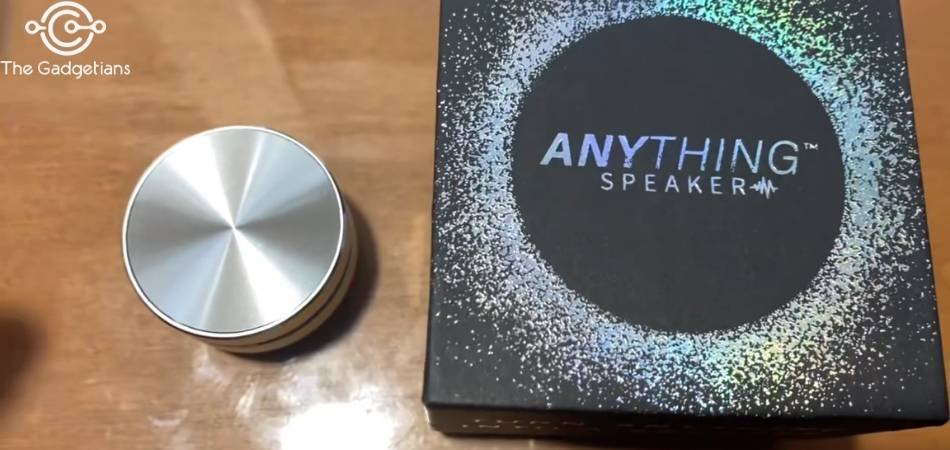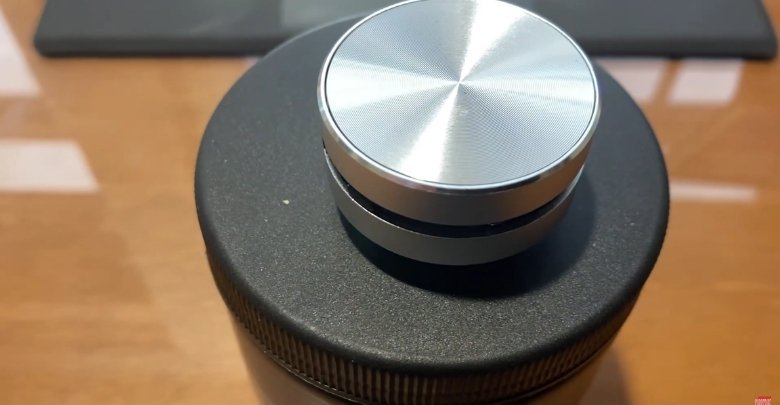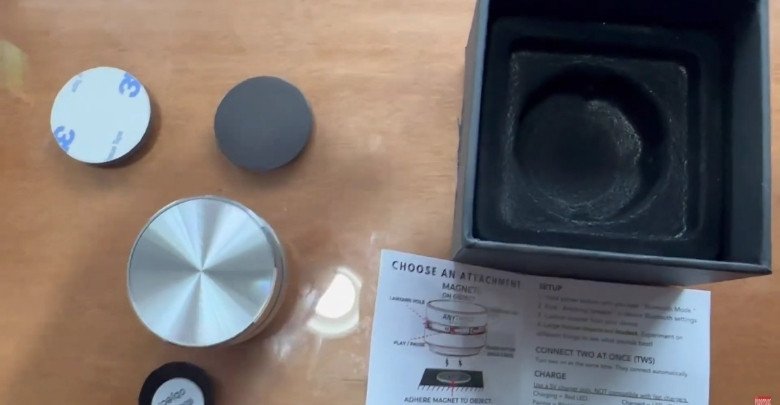Bluetooth speakers are a convenient and portable way to enjoy high-quality audio wherever you go. Whether you’re relaxing at home, hosting a party, or enjoying the great outdoors, the right speaker wattage can significantly increase your listening experience. Now, you might be wondering: How many watts are good for Bluetooth speakers?
Wattage of Bluetooth speakers depends on the space and intended use. Personal use requires 3-5W, while small rooms require 10-20W. Larger rooms require 50-100W, and outdoor settings benefit from 30W or more. For small gatherings, 6-10W is typically enough, but larger events demand higher wattage.
Knowing the wattage of a speaker can help you choose the right one. Keep reading to find the perfect wattage for your Bluetooth speaker based on your specific needs.
How Many Watts Are Good for Bluetooth Speakers?
Bluetooth speakers are a great way to enjoy music anywhere, from your bedroom to outdoor gatherings. Choosing the right wattage ensures the best sound quality for your needs. Let’s explore how many watts you need for different spaces and occasions.

Wattage for Personal Use
If you want a speaker just for yourself, a small one with 3–5 watts is enough. It delivers crisp audio for studying, relaxing, or casual listening. A great option is Anything Speaker, which offers clear sound at a low wattage for personal use. You get a compact, energy-efficient device that won’t disturb others.
Ideal Wattage for Small to Medium Rooms
For bedrooms, offices, or small living spaces, 10–20 watts works best. This range provides a richer sound without overpowering the space. It’s great for background music, podcasts, or movie-watching. A mid-range speaker ensures an enjoyable experience without needing excessive power.
Power Needed for Large Rooms
Larger living rooms or entertainment areas need 50–100 watts for full, balanced sound. This wattage prevents distortion and ensures clarity, even at higher volumes. It’s ideal for home theaters, gaming setups, or group listening. Investing in a higher-watt speaker improves the overall experience.
Best Wattage for Outdoor Use
Outdoor settings require at least 30 watts for clear, consistent sound. Open spaces make audio fade quickly, so more power is needed. A higher-watt speaker ensures music remains audible from a distance. This makes it perfect for picnics, backyard barbecues, or beach outings.
Wattage for Parties and Events
For parties and larger gatherings, a speaker with 60 watts or more is ideal. It provides deep bass, loud volume, and a lively atmosphere. The higher wattage ensures the sound reaches every corner of the space. Whether indoors or outdoors, a powerful speaker keeps the music going.
Does Bluetooth Speakers Connectivity Affect Their Wattage?
Yes, Bluetooth speaker connectivity can affect their wattage, but only indirectly. A stable connection ensures efficient power delivery, preventing unnecessary battery drain during playback. Weak signals force speakers to work harder, slightly increasing power consumption over time.
Bluetooth speakers rely on energy-efficient wireless technology, meaning their wattage remains largely unaffected by connectivity strength. However, factors like signal interference and distance can cause fluctuations in audio output. Some users confuse Wi-Fi requirements for Bluetooth speakers, but Bluetooth functions without Wi-Fi, keeping power consumption steady.
While connectivity doesn’t directly change wattage, inconsistent signals may impact volume levels and performance. A weak connection might lead to signal drops, requiring more power to maintain playback. Choosing a speaker with strong Bluetooth capabilities ensures stable sound quality and battery efficiency.
What’s the Difference Between RMS and Peak Power in Speakers?
Identifying the RMS and peak power of a Bluetooth speaker is important when considering its performance. RMS (Root Mean Square) indicates the continuous power a speaker can handle, while peak power refers to the maximum burst it can reach. Here’s a detailed comparison of these two power ratings:
| Aspect | RMS Power | Peak Power |
| Definition | Continuous power output a speaker can handle safely. | Maximum power a speaker can handle in short bursts. |
| Measurement | Calculated as an average over time. | Measured at the highest instantaneous level. |
| Reliability | More accurate for assessing performance. | Less reliable as it doesn’t reflect continuous usage. |
| Sound Quality | Produces stable and distortion-free sound. | May cause distortion at high volumes. |
| Power Handling | Determines how well a speaker can perform long-term. | Only relevant for short, high-energy sounds. |
| Energy Efficiency | More efficient as it maintains consistent output. | Consumes more energy during peak bursts. |
| Speaker Longevity | Extends the speaker’s lifespan by avoiding overheating. | Can shorten lifespan if pushed to max frequently. |
| Common Labeling | Used in professional and consumer-grade speakers. | Often advertised to make speakers seem more powerful. |
| Ideal Usage | Important for everyday listening and durability. | Relevant for momentary loud sound effects. |
| Buying Decision | Providing a more accurate assessment of a speaker’s ability. | Can be misleading if not considered with RMS. |
Does Higher Wattage Always Mean Louder Sound?
No, higher wattage does not always mean louder sound because several factors affect a speaker’s volume, clarity, and performance in real use. Speaker efficiency, driver quality, and enclosure design influence how well a speaker converts power into sound. A well-built 20-watt speaker can sound clearer and louder than a poorly designed 50-watt speaker.
Power is provided by more Watts, but how well it is converted into sound waves depends on the features of a good Bluetooth speaker and its sensitivity. A high-wattage speaker with poor sensitivity may require more power to produce the same volume as a lower-wattage, high-sensitivity speaker. Balanced audio output, efficient power usage, and a well-tuned acoustic design also improve overall sound performance.
Room size, placement, and environmental factors play a role in perceived loudness and sound quality in different listening spaces. A compact, well-tuned speaker can deliver crisp and loud audio without excessive wattage. Instead of focusing only on watts, check sensitivity ratings, driver quality, and overall design for better performance.
How Does Bluetooth Speaker Placement Affect Sound Quality and Wattage?
Bluetooth speakers deliver great sound, but their placement impacts quality and performance. Proper positioning enhances clarity, bass response, and overall experience. Maximize wattage and get the best audio output by understanding placement effects.

Room Acoustics Influence Sound Reflection
Walls, floors, and ceilings affect how sound waves travel within a space. Hard surfaces reflect sound, causing echoes and distortion. Soft furnishings like carpets and curtains absorb sound, reducing unwanted reflections. Proper placement helps balance reflections for a more natural audio experience.
Height Matters for Sound Distribution
Placing a Bluetooth speaker too low may muffle audio and reduce clarity. Distributing sound evenly around the room is easier with elevated positioning. A height of the ear level ensures the best listening experience. Keeping speakers away from obstructions prevents sound blockage.
Distance From Walls Impacts Bass Response
Positioning a speaker too close to a wall amplifies bass, sometimes making it overpowering. Placing it too far reduces bass impact and depth. A slight gap between the speaker and the wall creates a balanced low-end sound. Experimenting with different distances helps find the ideal placement.
Speaker Orientation Affects Audio Clarity
Facing the speaker directly toward the listener improves clarity and detail. Angling it incorrectly can scatter sound, reducing sharpness and impact. Stereo speakers should be slightly angled inward for the best audio experience. Ensuring proper alignment enhances vocal and instrumental separation.
Battery Life and Wattage Depend on Volume Levels
Higher wattage provides louder sound but drains battery life faster. Lower placement may require increased volume, reducing battery efficiency. A well-placed speaker at optimal volume preserves the battery and maintains audio clarity. Finding the right balance ensures longer playtime without sound distortion.
Outdoor and Indoor Placement Affect Performance
Indoor placement relies on walls and objects to shape sound distribution. Outdoor placement requires strategic positioning to prevent sound loss. Open spaces may need multiple speakers for balanced coverage. Proper placement helps maintain volume and clarity in different environments.
Are High-Wattage Bluetooth Speakers Worth the Price?
Yes, high-wattage Bluetooth speakers can be worth the price, depending on your needs. Higher wattage typically results in louder sound, ideal for outdoor events or parties. They offer better bass response and clearer audio at higher volumes.
While high-wattage speakers often deliver better sound, the price may not be justified for casual listeners. Most people can enjoy mid-range wattage without sacrificing quality. The extra power may only be necessary for specific use cases, like large gatherings or concerts.
If you prioritize sound quality and volume, investing in a high-wattage speaker could be worth it. However, consider your usage habits and budget before purchasing. In some cases, lower-wattage options offer great value with sufficient performance.
Best Way to Choose the Right Wattage for Your Bluetooth Speaker
Choosing the right wattage for your Bluetooth speaker is important for your listening experience. Too much power may not be necessary for casual use, while too little could affect sound quality. Here’s how to find the right balance based on your needs.

Recognize Your Listening Environment
Consider where you will use the speaker most often. Small rooms or indoors don’t need high wattage. A 10-20 watt speaker is enough for indoor spaces and provides clear sound. Larger rooms or outdoor areas require more power to fill the space and avoid sound loss at higher volumes.
Evaluate Your Desired Volume
Think about the sound level you prefer while listening. Lower-wattage speakers are great for quiet, personal listening without overwhelming noise. If you plan to host parties or events, go for higher wattage to ensure your sound reaches every corner. More power gives you a louder sound with less distortion, which is important for large gatherings.
Think About Bass and Clarity
Higher wattage can help produce deeper bass and clearer sound. If you enjoy strong bass, opt for higher wattage for richer low-end frequencies. Bass-heavy genres benefit from more power to prevent distortion and keep the sound clean. Clarity also improves with more wattage at higher volumes, especially in larger spaces or outdoors.
Check Battery Life
Speakers with higher wattage usually drain the battery faster, especially at high volumes. If you need longer battery life, balance power, and battery efficiency by choosing moderate wattage. Lower wattage often leads to better efficiency, allowing the speaker to last longer on a single charge. Choose a speaker that offers a balance between power and battery performance for your needs.
Consider Portability
If you plan to carry your speaker often, consider the weight and size. Higher-wattage speakers are often bulkier, which can be inconvenient if portability is important. For portability, a compact speaker with moderate wattage might suit your needs while still providing good sound quality. Ensure it’s easy to carry without sacrificing sound clarity or volume.
Frequently Asked Questions (FAQs)
A Bluetooth speaker’s wattage can be challenging to select. Below are some frequently asked questions to guide you in making an informed decision. These answers will help you understand how wattage affects your listening experience.
Does Speaker Wattage Affect Sound Quality?
Yes, wattage can influence sound quality, though it’s not the sole factor. Higher wattage helps provide louder and more consistent sound at higher volumes, but speaker quality, design, and acoustics are equally important. A well-designed speaker with lower wattage can sound better than one with poor design but high wattage.
Are 30 Watts Enough For An Outdoor Bluetooth Speaker?
A 30-watt Bluetooth speaker is generally adequate for outdoor use, depending on the size of the space. It can handle moderate volumes and provide clear sound in smaller outdoor settings like a backyard or picnic area. For larger outdoor gatherings, consider a speaker with a higher wattage to ensure sound coverage.
How Do I Know If My Bluetooth Speaker Has Enough Wattage?
The wattage needed depends on your space, the type of sound experience you want, and the event. Check your speaker’s specifications, and match the wattage to your environment. For personal or small room use, lower wattage will suffice, while larger rooms and outdoor events may require higher power.
Can I Use A Low-Wattage Speaker For A Party?
Low-wattage Bluetooth speakers can be used for a party, but they may not provide enough volume for a large crowd. For small gatherings, a 6-10 watt speaker is fine. For larger parties or events, higher-wattage speakers, typically 30–60 watts, are recommended to ensure loud and clear sound.
How Does Wattage Impact Battery Life In Bluetooth Speakers?
Higher wattage tends to drain the battery faster, especially at higher volumes. Larger speakers with more power may need frequent recharging if used at high volumes. Choosing a speaker with balanced wattage and battery efficiency ensures long-lasting playtime without compromising sound quality.
Can I Use A Bluetooth Speaker With High Wattage For Personal Use?
You can use a high-wattage Bluetooth speaker for personal use, but it may be unnecessary unless you want a louder experience. Personal use typically requires lower wattage, such as 3–5 watts, for a pleasant listening experience. High-wattage speakers are better suited for larger spaces or events.
How Do Bluetooth Speakers Convert Wattage Into Sound?
Bluetooth speakers convert wattage into sound using their drivers and amplification system. The wattage provides the power necessary for the speaker’s components to move air and produce sound. The design of the speaker, including driver size and materials, also plays a crucial role in how efficiently this energy is converted into audible sound.
Bottom Line
A good listening experience depends on choosing the right wattage for your Bluetooth speaker. The decision of how many watts are good for Bluetooth speakers depends on factors like room size, use case, and desired volume.
Smaller spaces need less wattage, with 3-5W for personal use and 10-20W for small rooms. Larger rooms and outdoor settings benefit from higher wattage, ranging from 50-100W for clear, balanced sound.
Besides, consider battery life, portability, and bass preferences when choosing the ideal speaker wattage. In the end, balancing power and efficiency ensures you get the best sound for your needs without compromising on quality or convenience.






